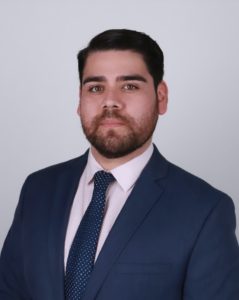
The Nonimmigrant Waiver
Non–immigrant waivers allow certain inadmissible foreign nationals to enter the U.S. as non–immigrants. The Non–immigrant waiver is available under INA §212(d)(3)(A) and the criteria for these waivers was established by the Board of Immigration Appeals (BIA) in Matter of Hranka. These criteria was later incorporated in the Foreign Affairs Manual at 9 FAM 305.4-3(C).
An inadmissible foreign national is an applicant that has been denied a visa to enter the U.S. due to being found inadmissible for certain reasons such as: health issues, criminal convictions, fraud or misrepresentation, or for accruing unlawful presence in the United States.
As outlined by the INA, inadmissibility usually occurs on one of the following grounds:
Health: Inadmissibility due to health can include those with a communicable disease – admitting such an individual into the United States would then constitute a public health risk. Other issues can include mental health disorders that constitute a threat to the public safety or drug abusers and addicts.
Fraud or Misrepresentation: Inadmissible when an applicant hides, lies, misleads material facts or submits falsified documents to an immigration official in order to obtain a visa to enter the United States.
Criminal Reasons: Inadmissibility due to criminal convictions.
Other reasons: Include student visa abusers, unlawful presence, alien smugglers, etc.
The Non–immigrant waiver waives most of these grounds of inadmissibility mentioned above without the need of a U.S. citizen or Legal Permanent Resident qualifying relative. Examples of common issues requiring 212(d)(3) waivers include overstays of nonimmigrant visas, prior work history on F-1 with a company that has been found to have violated the conditions of OPT employment, and individuals who have experienced expedited removal due to allegations of unauthorized employment or fraudulent misrepresentation when procuring a visa. Expedited removal can carry with it a five year ban from the United States while overstaying your non-immigrant visa for a significant period of time can incur a ten year ban.
When applying for a Non-immigrant waiver, the consular officer must consider the criteria set forth by Matter of Hranka, and by the Foreign Affairs Manual at 9 FAM 305.4-3(C). The factors that a consular officer must consider when reviewing a request for a waiver recommendation are the following:
(1)(U) The recency and seriousness of the activity or condition causing the alien’s inadmissibility;
(2)(U) The reasons for the proposed travel to the United States; and
(3)(U) The positive or negative effect, if any, of the planned travel on U.S. public interests.
You can apply for a Non–immigrant waiver at the U.S. consulate during your interview appointment or you can apply after the date of your appointment. There is no additional fee to apply for a Non–immigrant waiver at the U.S. consulates.
After submitting the waiver application the consular officer will review your application to ensure that you:
- Do not intend to become an immigrant
- Are applying for the correct waiver
- Are not inadmissible due to security-related grounds.
After submitting your application for a Non–immigrant waiver, a consular officer will make a recommendation or could request for more supporting documents. Once the consular officer has reviewed it and approve it, the consular officer will submit it to the Admissibility Review Office (ARO) for a final decision. Once approved, Non–immigrant waivers are issued for a maximum of 5 years, but they can be issue for 1 year or 6 months.
If you have been denied a non-immigrant visa due to being found inadmissible, you might be eligible for a waiver. For any questions and concerns regarding your visa denial and inadmissibility, please consult with an experienced immigration attorney to help you with your waiver application process.
By: Justin Rivera & Felipe Jimenez
Justin Rivera is a NIV Practice manager managing the non-immigrant visa (NIV) department at Reddy Neumann Brown PC Justin developed his passion for immigration law in law school where he helped African women who were victims of domestic violence secure visas under the VAWA. With a strong passion for immigration law, Justin strives to provide his clients with unparalleled quality service and professionalism. He specializes primarily in the H-1B visa process.
Felipe Jimenez is a Staff Attorney at Reddy Neumann Brown PC. He works in the H-1B Department where he assists clients through all phases of the non-immigrant visa process.


